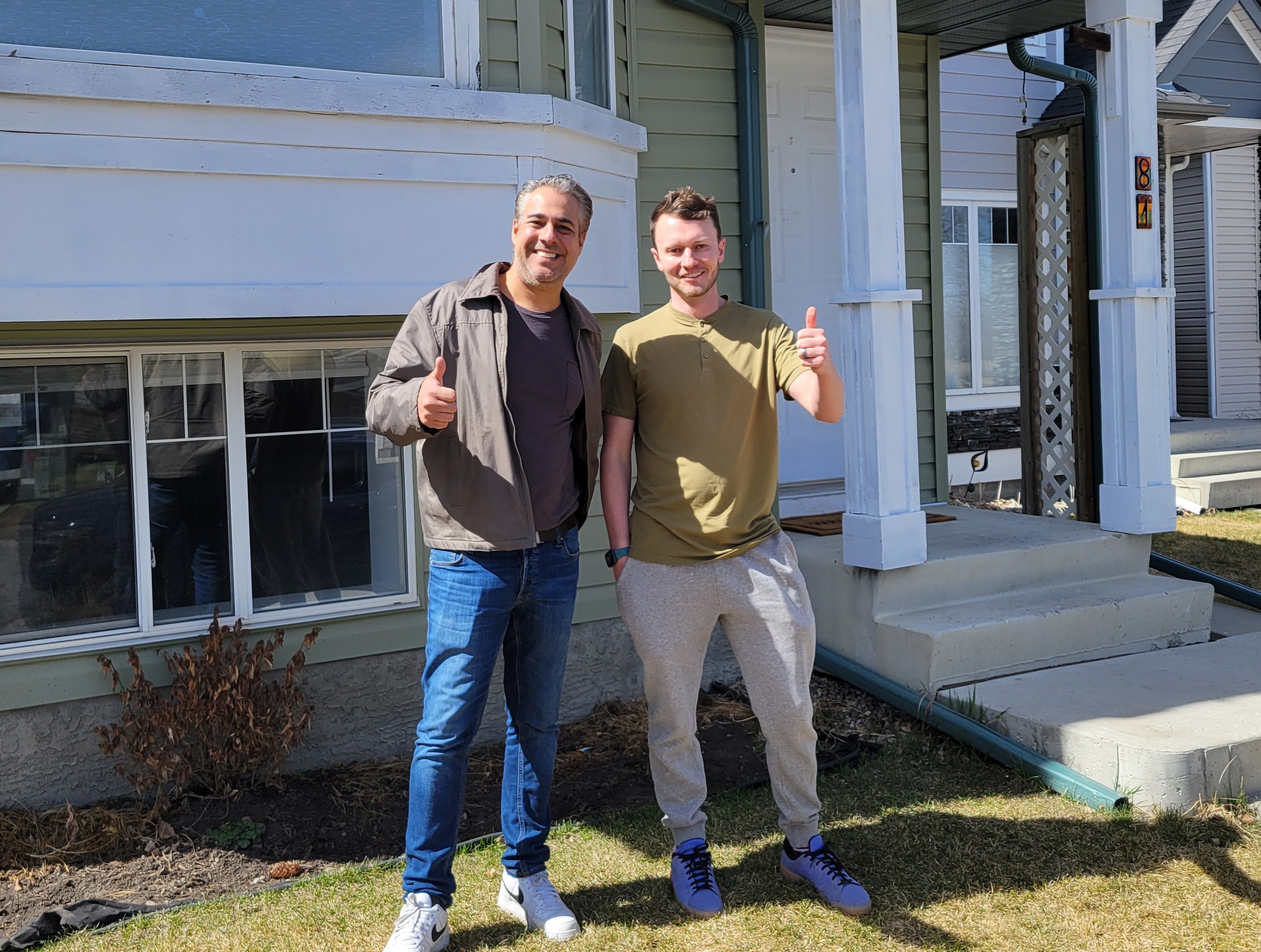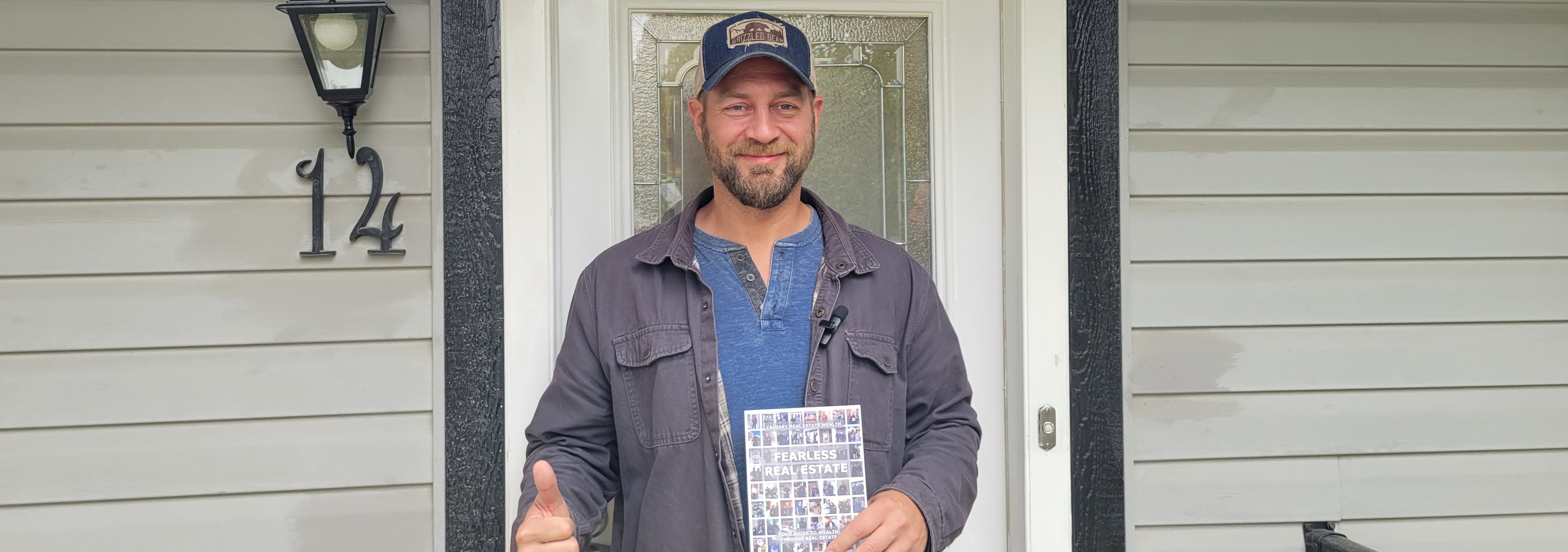Calgary Investment Property Buying Checklist: Everything You Need to Know Before You Invest
Real estate investing in Alberta is growing in popularity—and for good reason. With affordable property prices, strong rental demand, and landlord-friendly regulations, many investors from across Canada are setting their sights on Calgary, Edmonton, and surrounding markets.
But whether you're a first-time investor or expanding your portfolio, the process of purchasing an income-producing property is complex. To help you avoid costly mistakes and missed opportunities, here’s a comprehensive checklist to guide you from property search to closing day.

1. Define Your Investment Strategy
Before you browse listings, get clear on your investment goals:
- Are you buying for cash flow, appreciation, or both?
Clarifying your financial goal will determine what kind of property you should pursue. If you want reliable monthly income, look for high-rent, low-expense properties. If you aim for long-term gains, focus on growing areas with strong appreciation potential.
- Will this be a long-term rental, short-term rental, or rent-to-own?
Your strategy affects how you analyze properties, your financing needs, and your management structure. For example, short-term rentals require more effort and regulatory awareness but can generate higher returns.
- Do you plan to self-manage or hire a property manager?
Managing your own property can save money but requires time, knowledge, and availability. A property manager adds cost but brings expertise and time savings, especially for out-of-town investors. Our leasing division, CREW Property Leasing provides worry free leasing services at industry leading prices.
- What’s your ideal tenant profile (families, students, professionals)?
Knowing who your target tenant is helps narrow your search to areas and layouts that appeal to them. Proximity to schools, hospitals, or downtown can influence rental success.
2. Get Pre-Approved for Financing
Financing is one of the biggest hurdles, especially for investment properties.
- Talk to a mortgage broker familiar with Alberta investment financing
An investor-savvy broker will understand rental income rules, portfolio structuring, and lender preferences. They can help match you with the right bank or alternative lender for your goals. Calgary Real Estate Wealth’s go to real estate investment mortgage broker is Danielle Di Marco. Danielle not only gets you the best mortgage but also develops a real estate investment plan tailored to your unique needs.
- Confirm your down payment requirements (typically 20%+ for rentals)
Most lenders require at least 20% down for investment properties, though more may be required depending on the lender, type of property, or your financial profile.
- Understand qualifying criteria: rental offset rules, debt servicing, credit score
Rental offset or add-back calculations vary between lenders. Make sure you know how much rental income they count when qualifying you. Your credit score and income also play key roles.
- Ask about alternate lenders or corporation-structured mortgages
If you plan to buy through a corporation or have hit your borrowing limit with A-lenders, your broker can explore B-lenders or credit unions that support investor strategies.
3. Build Your Investment Team
Don’t go it alone. Build a local team who understands investor needs:
- Investor-focused REALTOR® who knows good cash flow areas
An investor-focused agent will steer you toward neighborhoods with strong rent potential and lower vacancy, rather than just attractive curb appeal. Calgary Real Estate Wealth has a whole team dedicated to real estate investment.
- Mortgage broker experienced in rental financing
They can guide you through complex qualification rules, compare rates, and optimize financing for long-term portfolio growth. Danielle Di Marco can do it all.
- Real estate lawyer (preferably Alberta-based)
An Alberta-based lawyer will understand provincial nuances around title registration, property disclosures, and legal suite compliance. Admiral Law is a Calgary law firm with strong real estate conveyancing skills and we have a great relationship with them. They take care of all of our investor’s needs.
- Home inspector who knows what to look for in older homes or suited units
A detailed inspection is critical to uncover hidden issues like moisture problems, wiring faults, or improper suite construction.
- Insurance broker who can quote landlord and liability coverage
Proper coverage is essential to protect your property and income. Not all insurance products cover rental use or tenant-related damage. Contact Calgary Real Estate Wealth to put you in touch with a great Insurance Broker.
- Optional: Contractors, property manager, accountant, JV partner
Have contacts ready if you plan to renovate, manage from a distance, or structure deals with partners. Experienced advisors can make or break your project.
4. Analyze Potential Properties
Run the numbers before falling in love with a property.
- Calculate gross rent and subtract all operating costs
Start with estimated monthly rent, then deduct expenses like taxes, insurance, utilities, maintenance, and a vacancy reserve. This gives you your net operating income (NOI).
- Determine cash flow and cash-on-cash return
Cash flow is what’s left after all expenses and mortgage payments. Divide your annual cash flow by your total investment to calculate your return on investment (ROI).
- Consider future rent increases, turnover costs, or likely repairs
Think beyond Year 1. What happens when a tenant leaves? What capital expenses are likely in the next 5 years? Projecting future scenarios helps avoid negative surprises.
5. Verify Zoning and Suite Legality
Especially in Calgary and Edmonton, secondary suites must meet specific zoning and building code requirements.
- Check zoning maps (e.g., R-CG, R-C2, R-2M)
The zoning code tells you whether secondary suites are allowed and if permits can be obtained for development.
- Request development permits and occupancy certificates for existing suites
These documents confirm that a suite is legal and up to code. Without them, you may face enforcement or insurance problems.
- If suite is not legal, ask: what’s needed to legalize it?
You may be able to bring it up to code, but this could require costly upgrades to windows, ceiling height, egress, or fire separation.
- Will it affect financing or insurance?
Some lenders and insurers may not support non-compliant suites. It could also impact your ability to refinance later.
6. Perform Due Diligence on the Property
Once you’ve made an offer, dig into the details:
- Home inspection: Focus on roof, furnace, plumbing, electrical, foundation
A licensed inspector can reveal costly repairs that affect your ROI. Ask for detailed notes and photos.
- Title search: Look for liens, caveats, or easements
Your lawyer will review this to ensure there are no unexpected claims or restrictions on the land.
- Real Property Report (RPR): Needed for legal boundaries, fencing, garages, additions
This report confirms the location of structures and whether they meet municipal bylaws. Missing or non-compliant RPRs can delay closing.
- Condo docs (if applicable): Review reserve fund, bylaws, special assessments
Ensure the condo is financially healthy and doesn’t restrict your ability to rent out or renovate the unit.
7. Secure Insurance and Utility Accounts
Once conditions are waived:
- Bind landlord insurance before possession
You’ll need coverage for fire, liability, loss of income, and tenant-related damages. Get this in place well before possession.
- Add liability insurance if doing renovations or tenant placement
If contractors are involved or tenants are moving in, protect yourself against liability claims during the transition.
- Set up utility accounts in your name if needed
For vacant units or utilities not paid by tenants, arrange water, gas, and electricity accounts ahead of time.
- Consider rent guarantee insurance or loss of income coverage
These add-ons can help protect your cash flow during vacancies or if a tenant defaults.
8. Prepare for Property Management
Before tenants move in, line up your systems:
- A lease agreement tailored to Alberta laws (not just a generic form)
Use the standard Alberta lease as a foundation, but customize it to include clauses about maintenance, utilities, and expectations.
- Move-in inspection report (with photos)
This protects you and the tenant by documenting the condition of the unit before occupancy. It's required by law in Alberta.
- Tenant screening criteria and application forms
Define your non-negotiables (income, credit, references) and use consistent forms for all applicants.
- Rent collection process (e-transfer, online portal, etc.)
Choose a system that’s convenient and trackable. Online rent collection reduces late payments and disputes.
- Emergency maintenance response plan
Have a plan for after-hours issues. Whether it's a plumber on call or a property manager, make sure someone can respond quickly.
9. Close the Deal
Your real estate lawyer will help you:
- Review and sign final documents
Ensure everything is accurate, including names, legal descriptions, and financial terms.
- Transfer funds
Your lawyer will coordinate with your lender and ensure funds are released and received correctly.
- Register the title
Once the property is legally yours, the title will be updated and registered in your name.
- Handle closing adjustments (property taxes, rents, deposits, etc.)
These are prorated so you only pay or receive what’s fair based on possession date.
10. Take Possession and Launch!
On possession day:
- Change locks (or get smart locks installed)
For security and liability, change locks immediately after the seller vacates.
- Take utility meter readings
This ensures you're only billed for usage from possession date onward.
- Verify smoke/carbon monoxide alarms
Safety checks are essential, especially if tenants are moving in right away.
- Do a deep clean if needed
Even if the seller cleaned, a professional deep clean makes the unit move-in ready and more appealing.
- Begin tenant placement—or transfer leases if already occupied
If tenants are in place, review the lease terms and transfer security deposits. If not, start marketing right away with quality photos and tenant screening.
Alberta Rewards the Prepared Investor
Buying an investment property in Alberta—especially Calgary or Edmonton—can be incredibly rewarding, but only if you do your homework. Use this checklist as your roadmap and surround yourself with professionals who understand the investor mindset.
Calgary Real Estate Wealth is a full service real estate investment firm that sources, analyzes & negotiates premium investment properties for its investors since 2006. Calgary Real Estate Wealth offers mentorship on all aspects of real estate investing investing through bi-weekly webinars, blogs, podcasts, books & its You tube channel, CREW TV. Calgary Real Estate Wealth also offers, through it's leasing division, CREW Property Services, tenant placement services, ongoing leasing services, and property maintenance and renovations for each property purchased. Real estate investing has never been so easy!
If you're interested in deeper dives on Calgary neighborhoods, investment calculators, or walkthroughs of actual deals, be sure to subscribe to the blog. More Alberta-focused real estate content is coming your way.
Posted by Calgary Real Estate Wealth on

Leave A Comment